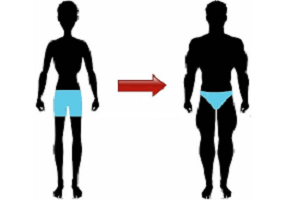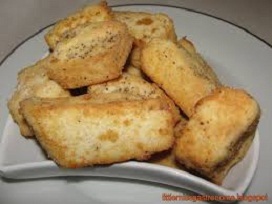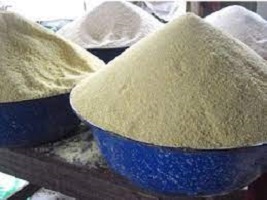Nigerian foods that make you fat or gain weight fast
Nigerian foods that make you fat or gain weight fast

Are you having a hard time losing weight?
The primary motivation for eating is to maintain one’s health. While some people strive to lose a few pounds, others want to gain a healthy amount of weight.
This article will provide a list of foods and snacks that will assist you in gaining weight.
Get in here if you’re currently being called pistol, Bonga fish, atinga no blood, longa longa, ogwu azu (fish bones), a bag of bones, willy willy, or fido dido.
[I know the names are not yet finished, hence help me to come up with more names for slim folks]
Checkout >>>
- Healthy Foods for Fast Weight Gain – Low Budget Diet Plan
- Weight Gain Breakfast: Healthy Smoothie Recipes
- How to Gain Weight in 10 Days? Bid farewell to a Skinny Body
- Best Bedtime Foods for Weight Loss
Table of Contents
Nigerian foods that make you fat
Gaining weight can be challenging for some slim individuals. These folks are frequently bullied, although few people recognize it as bullying.
Yes, it is acceptable to say to a skinny somebody, “You are too thin. Are you eating at all?” But you must not say to a big somebody, “You eat too much!” If you do that, all the proponents of plus-size individuals will come after you. Anyway, that’s a story for another day, though.
It is popular to lose weight these days. Although there is a lot of focus on weight loss, many people are having difficulty gaining weight.
What we consume plays a big role in determining our weight. Many Nigerians have pondered whether certain foods may aid in their weight gain. Today, I’ve put up a list of Nigerian foods that aid weight gain.
Before I go any further, you should be aware that some circumstances may be contributing to your inability to acquire weight. These aspects will be briefly discussed.
Nigerian foods that make you fat
We’ll also determine whether you truly need to gain weight, as some people may not be underweight yet wish to gain weight.
Then we’ll see if Nigerian food can aid weight gain before moving on to Nigerian foods that can aid weight gain.
Do you necessarily need to gain additional weight?
It’s usually a good idea to assess whether or not you actually require something. The majority of people who want to gain weight are underweight.
In medical terminology, being underweight means having a BMI of less than 18.5.
You must recognize that some people are naturally thin, but this does not imply that they are unhealthy.
On average, females are more likely than males to be underweight.
Why do you think you’re underweight?
You can be underweighting for a variety of reasons, including:
- Hereditary or genetic factors
- Eating disorders such as anorexia nervosa
- Hyperthyroidism
- Celiac illness (gluten intolerance)
- Diabetes
- Anxiety, depression, and other mental diseases
What is the best way to weight gain? How to gain weight?
- There is plenty of information on how to lose weight, but there isn’t much on how to gain weight in a “healthy” manner.
- First and foremost, you must determine whether you absolutely require the weight gain.
- *BMI = Weight in kg/Height sq m2
- Underweight = 18.5
- Normal = 18.5 – 24.9
- Still on BMI Overweight = 25–29.9 (Lose weight)
- Obese =30 & above (See a doctor fast, you are a ticking time bomb)
- You should only CONSIDER GAINING WEIGHT if you are less than 18.5.
- Eating more calories than you expend is the key to gaining weight. It is both simple and sophisticated.
How many calories should an individual eat on a daily basis?
You must maintain a calorie deficit in order to lose weight and live a healthier lifestyle. It is necessary to match your calorie intake to your calorie needs in order to maintain your weight and keep a close eye on it.
To maintain weight, an adult male requires up to 2,000 calories per day and a female 1,800 calories per day.
However, this is dependent on your body mass index (BMI calculation), which is determined by your height, weight, gender, and degree of activity.
To lose weight, you must establish a calorie deficit of 500 calories by exercising or carefully monitoring your food consumption.
Example: An adult male’s daily calorie intake of 2,000 calories minus a 500-calorie deficit gained through intense exercise or meal portion reduction equals 1,500 calories for the day. (Weight loss plan in the works)
- However, the goal of this essay is to discuss why people gain weight instead of losing it.
First and foremost, the number of calories you burn each day may be computed using your gender, weight, height, and degree of exercise.
Is it true that Nigerian food might help you gain weight? Nigerian foods that make you fat
Yes! You don’t eat high-calorie meals with the intention of gaining weight. Instead, consume high-calorie, high-nutrient meals. Most high-calorie, unhealthy diets contain poor fats and too much sugar, resulting in an increase in belly fat.
The sort of food you consume has a significant impact on the number of calories you consume over time.
Nigeria’s Fatty Foods List ~ Nigerian foods that make you fat
It’s important to understand the role of fat in your diet.
How much fat you should eat depends on what fatty foods are available in Nigeria and how much fat these meals include.
Fats: What They Are and Why You Need Them
The foods we eat provide our bodies with a variety of nutrients, including lipids. Once upon a time, doctors cautioned against consuming fat-containing meals since they increase the risk of heart disease and diabetes.
Recent research has revealed that not all fats are dangerous. The body, in reality, requires some fat from the foods we eat since it cannot create them on its own.
Fats are a type of food that, when taken and digested, creates a large amount of energy for the body to use. They are stored as fatty acids in specific cells when they are in excess – basic science.
These fats are important sources of energy for the body because they are stored as energy for times when energy is scarce.
Surprisingly, fatty foods are not the only ones that are preserved throughout digestion and storage.
Carbohydrates, which are broken down into glucose when digested, are also stored as glycogen when the body has more glucose than it requires at a given time.
When the body requires energy, the fatty acids can be transformed to provide it.
Fats have a negative reputation because of the problem of the body storing fat indefinitely – which it does effectively – and then creating obesity, diabetes, and cardiovascular problems.
However, not all dietary fats are responsible for this. Some fats should be avoided, while others can be ingested in moderation and are required.
List of fatty foods: Nigerian Foods That Make You Fat
- Meat
- Nigerian Swallows ~ Nigerian foods that make you fat
- Dairy products
- Fruits like avocado and nuts
- Nigerian snacks like plantain chips
- Smoothies and milkshakes
- Tubers
- Rice and beans
- Whole wheat bread.
- Eggs
- Tuwo Shinkafa
- Milk
- Semo With Egusi Soup ~ Nigerian foods that make you fat
- Banga Soup and Starch ~ Nigerian foods that make you fat
- Afang Soup with Fufu ~ Nigerian foods that make you fat
- Garri
Nigerian foods that contribute to weight gain and their calorie content ~ Nigerian foods that make you fat
- Akpu/Fufu (Fist size, 1 wrap): 330
- Pounded yam: 400
- Wheat: 455
- Eba (1 cup of garri): 400
- Cow leg sauce: 300
- Fried plantain: 68 (1 slice)
- Banana: 125
- Beans with oil: 520 (1 cup)
- White rice: 693 (1 cup).
- Jollof rice: 868 Bread: 70 (1 slice).
- Tuwo masara (1 cup): 450
- Corn: 77
- Margarine (1 spoon): 102
- Mayonnaise (1 spoon)
- Soybeans (1 cup): 446.
- White flour (1 cup): 455
- Eko/akamu/ogi/pap: 91 (akamu with milk can make you fat)
- Semovita (1 cup): 600
- Amala (1 cup): 352
- Calories in moi moi: 306
- One wrap of okpa: 250 Calories
- Calories in agidi: 211
- Oha soup: 142 Calories
- Calories of white rice and stew: 411
- Gala: 297 Calories
- White rice and chicken breast: 780
- Calories of roasted plantain (boli): 252
- 640 g of Indomie noodles (super pack)
These will give you an estimate of your daily calorie intake! They are, nevertheless, calorie-dense Nigerian cuisine.
Simple guidelines for gaining a healthy weight
- Eat more frequently.
- Don’t drink water before eating because it will fill up your stomach and take up room that may be used for food.
- To eat, use larger plates.
- Get plenty of rest.
- Consume a calorie-dense, healthful diet.
- Consume milk
- Good snacks are nuts, peanut butter, cheese, dried fruits, and avocados.
- Get some exercise. It will assist you in gaining muscular mass.
- Consume a well-balanced diet.
- Consume food before and after your workout.
Bottom Line on Nigerian foods that make you fat
Consume more than your body requires each day to accomplish its functions, and the rest will be stored as fat or muscle (if you exercise).
Pregnant women, mothers who have recently given birth (postpartum weight gain), and breastfeeding mothers can all benefit from this Nigerian weight gain diet plan.


